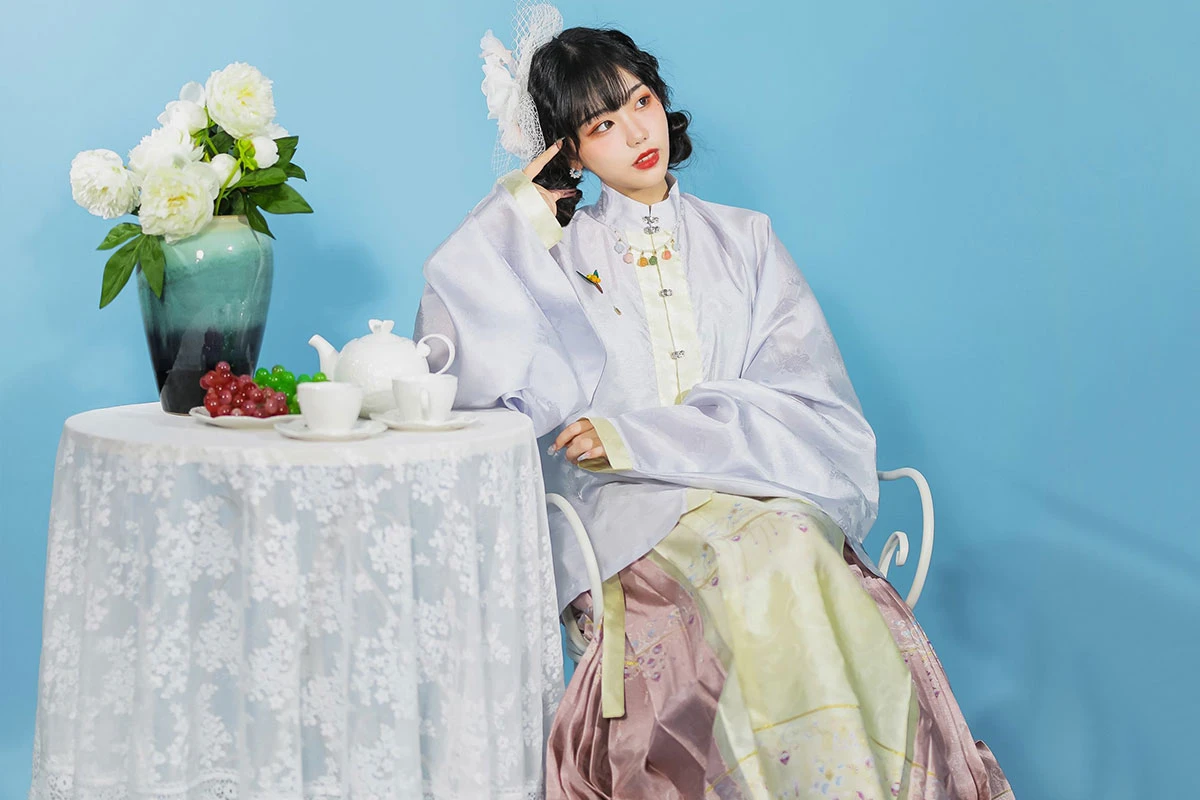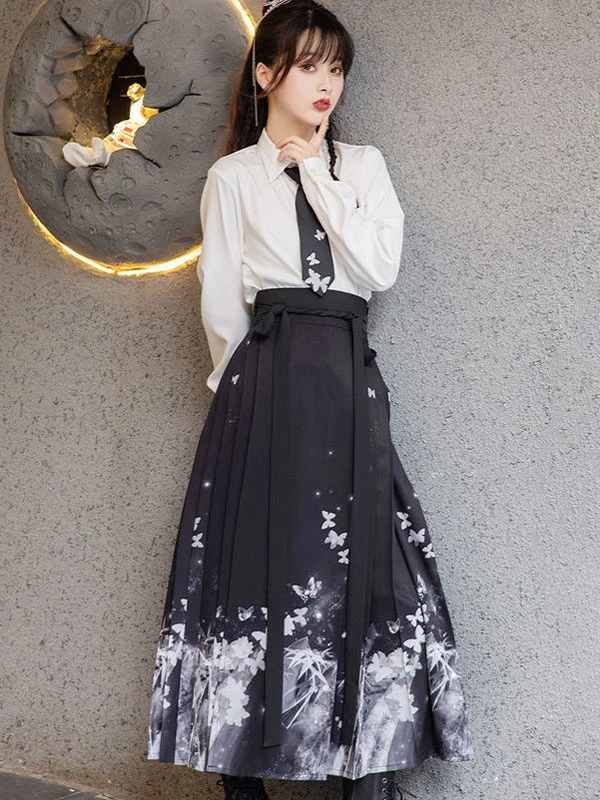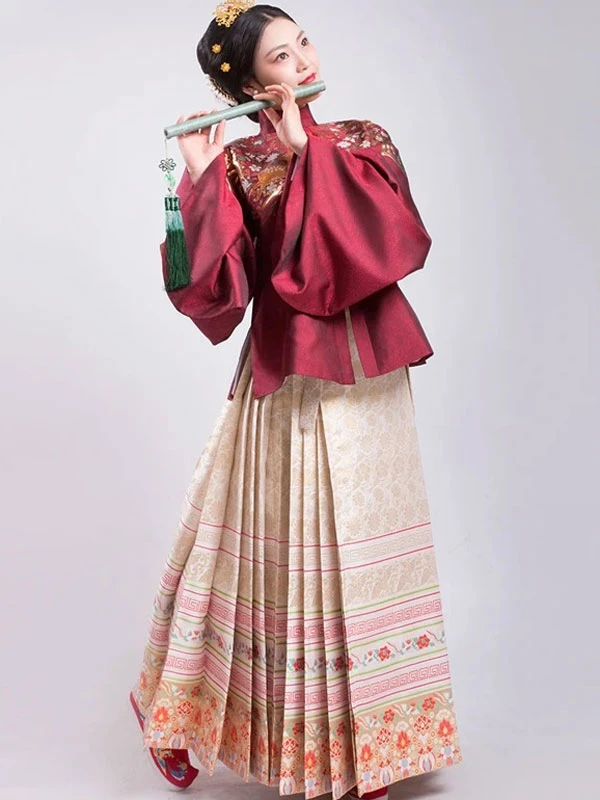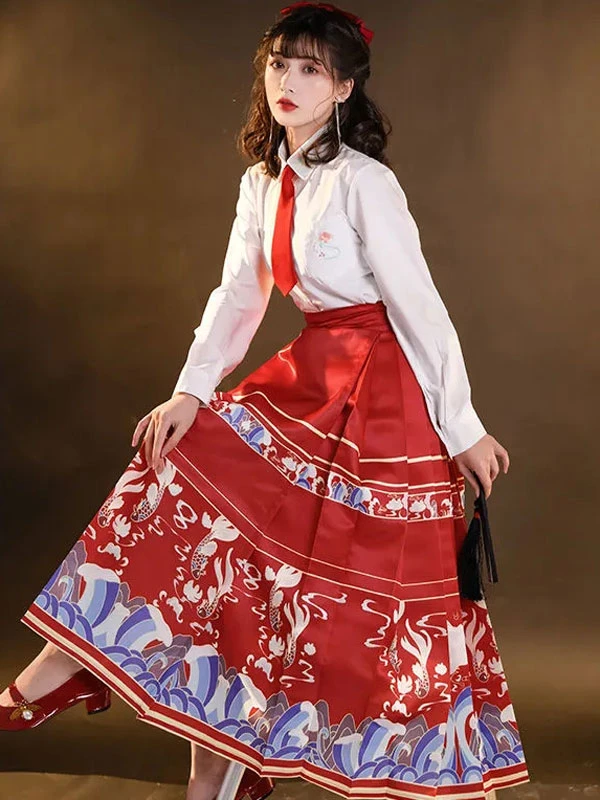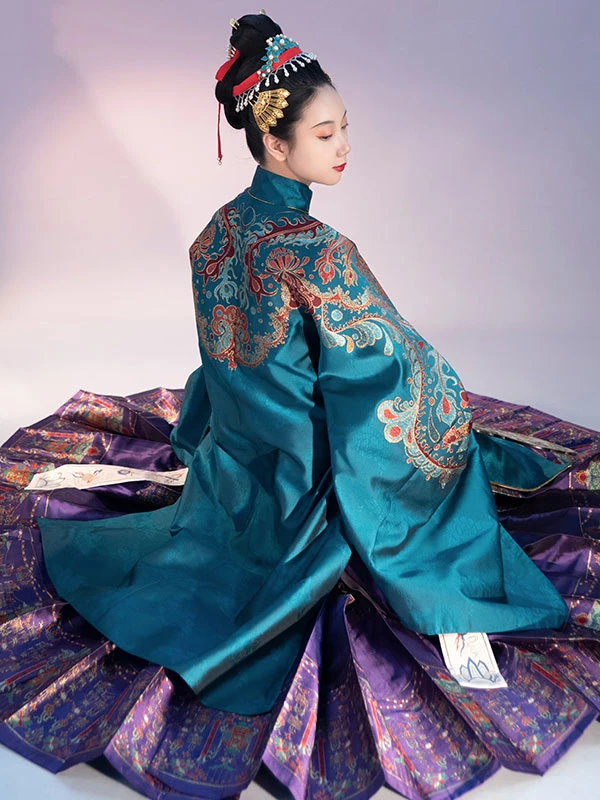The mamianqun (literally “horse-faced skirt”) was a skirt style popular among Han women in the Ming and Qing dynasties, and was named so for its resemblance to the Mamian fortress’s structure. Now, after going on a long hiatus in the 20th century, it is finally coming back into fashion because of the growing interest in hanfu around the globe. But what was it like back in its heyday? And how has it evolved since?
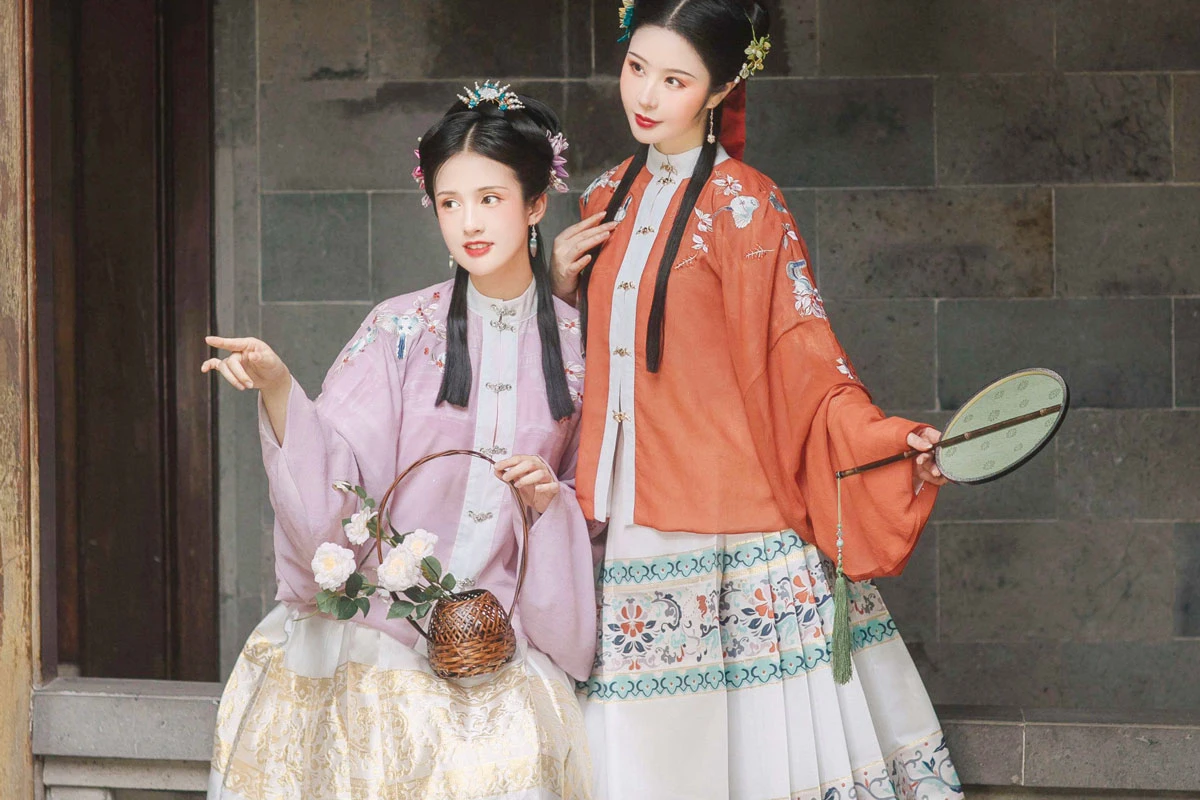
Historical Style Trends
Ming Dynasty
In the Ming dynasty (1368 to 1644), this skirt was all the rage, not just for the imperial harem, but also for ordinary people. The basic construction was the same for all, but pattern, color, and material varied according to class and occupation.
What makes the Ming mamianqun iconic is its use of gold embroidery in intricate patterns, the main focal points of which start from around the knee-level of the skirt and go down to the hem, typically in horizontal bands. Its classic colors are jewel-toned reds, blues, and greens. The pleats were also rather large and sparse compared to Qing mamianqun.
Qing Dynasty horse face skirt
In the Qing dynasty (1644 to 1911), the mamianqun underwent a number of changes. Its embroidery patterns became much more lavish and colorful, especially on the outer skirt doors, and incorporated a wider variety of auspicious animal, insect, and flower symbols. Designs became more complicated, and some variants featured tighter and more numerous pleats, as well as sharp, contrasting trims and irregularly shaped front doors.
How to Style the Mamianqun
The mamianqun has come a long way, and there are more skirt styles available on the market than ever before. You have your pick between classic Ming and Qing skirts, historically-inspired skirts, and modernized skirts. Today, there is a silhouette, pattern, and color for every occasion.
For instance, light and plain mamianqun are more suitable for daily life because they offer convenience with daily action. On the other hand, the elaborately patterned mamianqun are more suitable for formal ceremonies like traditional-style weddings, where brides would wear heavy red or blue Ming skirts.
You can match your skirt with other hanfu garments, or you can also do it with ordinary clothes, especially blouses and tops; both are very common among hanfu enthusiasts. Below are a few mamianqun outfit inspirations to help you start your search for the perfect skirt for your desired occasion.
1. Modern Hanfu Skirt
This black mamianqun features a contemporary white flower and butterfly print around the hem. Combined with a matching tie and white collared shirt, the outfit definitely feels equal parts quirky and relaxed.
2. Semi-formal Ming Style
This outfit balances a mamianqun bursting with colorful florals with a short but dignified aoqun top. The skirt embroidery and length of the aoqun make it best for semi-formal occasions; it is eye-catching, but not overwhelming. A classic look!
3. Casual Red Hanfu
There are many ways to modernize the mamianqun and still incorporate traditional symbols. The pop of a vibrant red midi skirt against a white shirt can sure make a bold statement! The patterns on this mamianqun are contemporary-style graphics depicting fish and waves, which represent wealth and prosperity.
4. High-end Wedding Hanfu
If it’s an ultra-traditional formal look you’re after, a richly embroidered mamianqun will never disappoint. This Ming outfit pulls out all the stops with a stunningly elaborate skirt in royal purple, paired with a long aoqun top. This silhouette has the power to make a regal princess out of anyone.
A Skirt for the Bold
The mamianqun is not limited to any one occasion. Mix and match, explore, and experiment; you might be surprised by the number of outfits you can achieve with this skirt. With the right tops and blouses, you can enjoy your mamianqun no matter if you’re going for dressy or fancy. Add a few pieces to your wardrobe today!

